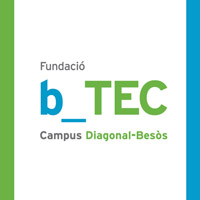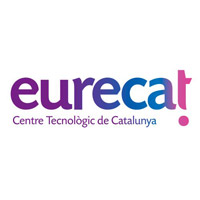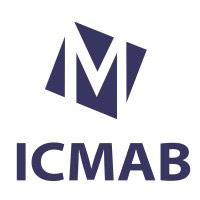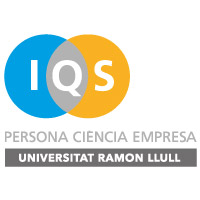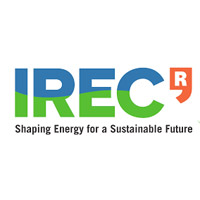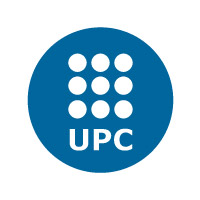Partners
BSC-CNS
Barcelona Supercomputing Center – Centro Nacional de Supercomputación
The Barcelona Supercomputing Center (BSC) is at the service of the international scientific community and of industry that requires HPC resources. Our multidisciplinary research team and our computational facilities –including MareNostrum– make BSC an international centre of excellence in e-Science. Since its establishment in 2005, BSC has developed an active role in fostering HPC in Spain and Europe as an essential tool for international competitiveness in science and engineering. The centre manages the Red Española de Supercomputación (RES), and is a hosting member of the Partnership for Advanced Computing in Europe (PRACE) initiative. We actively participate in the main European HPC initiatives, in close cooperation with other European supercomputing centres. With a total staff of more than 650 R&D experts and professionals, BSC has been successful in attracting talent, and our research focuses on four fields: Computer Sciences, Life Sciences, Earth Sciences and Computer Applications in Science and Engineering.
Most of BSC’s research lines are developed within the framework of European Union research funding programmes, and the centre also does basic and applied research in collaboration with leading companies such as IBM, Microsoft, Intel, Nvidia, Lenovo, Fujitsu, Repsol and Iberdrola. The centre has been extremely active in the EC Framework Programmes and has participated in seventy-nine projects funded by it. BSC is a founding member of HiPEAC, the ETP4HPC and participates in the most relevant international roadmapping and discussion forums and has strong links to Latin America. Education and Training is a priority for the centre and many of BSCs researchers are also university lecturers. BSC offers courses as a PRACE Advanced Training Centre, and through the Spanish national supercomputing network among others. The quality of our investigation has been recognized by the Spanish government with the Severo Ochoa Excellence Centre grant for cutting edge Spanish science.
BTEC
Fundació b_TEC Campus Diagonal-Besòs
The b_TEC Campus Diagonal-Besòs Foundation leads the creation of the Diagonal-Besòs Campus to promote new university facilities that act as an engine for the transformation of the territory. Its Board of Trustees is made up of the UPC, the Generalitat de Catalunya and the local administrations grouped in the Consortium of the Diagonal-Besòs Campus (CCDB). The Foundation is chaired by the Rector of the Universitat Politècnica de Catalunya BarcelonaTech (UPC).
Currently the Campus has around 3.300 enrolled students and counts with around 400 teachers and researchers from the Barcelona East School of Engineering (EEBE). With a range of degrees, masters and doctorates, focused on electrical, industrial and automatic electronics, energy, mechanical, biomedical, chemical and materials engineering. In addition to the teaching activity (7 undergraduate studies, 6 master’s degree studies and 4 doctoral programs), 41 groups and research centers in different fields of engineering (biomedical, electricity, electronics and industrial automation, energy, materials, mechanics, chemistry and nanotechnology).
The b_TEC Campus Diagonal-Besòs Foundation has extensive experience in fusion-related work, especially in organizing seminars and workshops and in networking among companies and research centers.
EURECAT
Fundació Eurecat
Eurecat is the largest cross-sectorial and trans-national RTO in Catalonia, Spain. It provides the industrial and business sector with differential technology and advanced expertise to boost their competitiveness in a fast-paced environment. Covering all technological specialities to deliver added value to our society, the RTO brings together the expertise of more than 650 professionals who generate an income of more than 50M€ per year. Eurecat is involved in more than 200 national and international RDI projects with high strategic value, collaborating with more than 1,600 companies.
This project will be led by the Advanced Simulation group, which integrates a team of simulation engineers with wide expertise in projects aimed to analyse, design and optimize products, structures, fluid-dynamic systems and processes, through the implementation of advanced design and simulation methods at multiphysic level, such as generative design, topology optimization, the Finite Element Method (FEM) or Computational Fluid Dynamics (CFD).
ICMAB
Institut de Ciència de Materials de Barcelona
ICMAB, is a research institute of the Higher Council for Scientific Research, CSIC, of recognized international impact, oriented to the research and development of Advanced Functional Materials and Nanomaterials. Its international leadership has been recognized with the Severo Ochoa distinction (2015), recently renewed (2020), being the only materials institute in Spain that has it. Its objectives range from disruptive fundamental science to technology transfer, with an emphasis on training new researchers at all levels.
SUMAN research group, has dedicated research effort to the development and understanding of superconducting materials of high critical temperature (HTS), covering both the knowledge of their physics and the development of the material and its applications. At present, the group concentrates the effort of 25 researchers including engineers, chemists, physicists and technologists, with a gender balance of 50% in the permanent researchers. During the last 10 years, the group has been active in 15 competitive european and 27 national projects, as well as 15 industrial projects. And it has promoted a spin-off company, OXOLUTIA S.L. (2010-2020), which has developed the manufacture of low and medium cost HTS tapes with the ability to adapt to special applications. Among the application development projects, it is worth highlighting: contract with CERN to contribute to the development of the FCC accelerator; contract with the ALBA synchrotron to collaborate in the design and construction of a high field superconducting magnet for the resonant magnetic scattering terminal station on the BOREAS line; contract and project RETOS colaboración with GAMESA for the development of a 2MW medium speed generator for wind generators; H2020 FASTGRID project for the development of a superconducting current limiter for direct current and collaboration through CIEMAT in the development project of HTS magnets of the Tokamak DEMO in the context of EUROFUSION. Finally, the European FORTISSIMO project also contributed to the development, in the FEMPAR parallelization environment for High Performance Computing, of the MAXWELL application for modeling the electromagnetic behaviour of superconducting materials in their applications. On the other hand, based on its experience, the group’s activity collaborates in the development of powerful design tools necessary for the structural, thermal and electromagnetic design of plasma confinement systems for nuclear fusion, including the requirements demanded by the new HTS materials, from the design of the cable, its handling, its commissioning and its behaviour in its activity.
IQS-URL
Institut Químic de Sarrià, CETS Fundació Privada
The Chemical Institut of Sarrià, CETS Private Foundation (IQS) is a founding university center of the Ramon Llull University. The mission of the IQS is the comprehensive training of people with attitudes, knowledge and skills that enable them and encourage them to create, lead and manage competitive organizations, highlighting the industrial and technological area.
IQS groups its training and research activities into two main blocks: IQS School of Engineering, and IQS School of Management. Teaching and research at IQS are addressed to serving society, focused on industrial needs to improve competitiveness in business and industrial innovation.
IQS has a solid record of accomplishment in applied and fundamental research, technology development, technology transfer, and knowledge valuation towards its industrial environment. Technology transfer activities represent 20% of IQS revenues.
The Electrochemistry Laboratory is part of the Department of Analytical and Applied Chemistry of the IQS School of Engineering. This group has participated in research projects related to nuclear fusion technologies (CSD2008-79, ENE2014-52325, RTI2018-095045-B-I00, IU16-011704). In these projects, prototypes of electrochemical hydrogen sensors have been developed and the first steps have been taken in the synthesis and characterization of lithium ion conductors. He has also participated in several research projects related to molten metal technologies for nuclear applications (ENE2009-14223-C02-02, FI6W-CT-2004-516520, FP7-Fission-2009-249677).
The group has experimental facilities for working with molten metals and electrochemical instrumentation. The laboratories of the Department of Analytical and Applied Chemistry are equipped with analytical instrumentation to perform a wide range of analytical determinations.
IREC
Fundació Institut de Recerca en Energia de Catalunya
IREC‘s research areas are Advanced Materials for Energy, working on functional nanomaterials, catalysis, materials for solar systems, nanoionics and fuel cells, energy storage and harvesting and Energy Efficiency: Systems, Buildings and Communities, working in NZEV (“Net Zero Buildings and Communities”), Integration of Renewables, “Smart Grids” and Microgrids, “Green IT”, Electric Mobility, Economic and Regulation Analysis and Fusion Energy.
The IREC Fusion team is composed of 4 members of scientific staff. The most relevant activities carried out since 2011 are:
- Design and coordination of the activities of the HEBT line for IFMIF DONES.
- Thermomechanical design and analysis for the IFMIF LIPAc accelerator in collaboration with CIEMAT.
- Design of High Temperature Superconductors for DEMO within the framework of the EFDA and Eurofusion programs. Development, modeling and characterization of HTS joints.
- Energy storage systems for DEMO within the framework of the EFDA and Eurofusion programs. Technical advice on the requirements for the DEMO fusion plant.
- Study, design and technical specification of power supplies for LIPAc magnets in collaboration with CIEMAT.
- Industrial collaboration in international projects for fusion energy and particle accelerators:
- Technical assistance in the field of the ITER Interlock System in collaboration with Procon Systems.
- Technical assistance in ITER cryogenic systems in collaboration with IDOM Ingeniería.
- Technical assistance in the field of HVAC systems for CERN in collaboration with Procon Systems and Sades.
The IREC Fusion Team, in collaboration with CIEMAT, was responsible as Local Organizing Committee (LOC) of the 11th International Symposium on Nuclear Fusion Technology (ISFNT-11) held in Barcelona from September 16 to 20 of 2013. ISFNT is the most recognized congress related to fusion technologies and attracted more than 800 participants.
UPC
Universitat Politècnica de Catalunya
The Universitat Politècnica de Catalunya (UPC) is a public university, and its research and higher education activity is carried out in the areas of engineering, architecture and science. As in all prestigious universities, teaching, research and technology transfer are the foundations of the University.
The UPC has carried out research and technology transfer activities in the field of Nuclear Fusion Energy for years. Three research groups participate in the framework of the following proposal: ANT, CTTC and NEMEN. The UPC participated actively in the Spanish Fusion Technology Program, CONSOLIDER TECNOFUS. CSD2008-00079. Ministry of Science and Innovation (MICINN). 2009-2013.
ANT (Advanced Nuclear Technologies)has more than 10 years of experience in nuclear fusion technology, especially in CFD simulation of magnetohydrodynamics of liquid metals and in tritium migration analysis. ANT has developed its own algorithms and has conducted numerous studies of regenerative tritium envelopes. ANT has extensive experience in the development and use of system thermohydraulic codes, which has been applied to different areas of Nuclear Fusion Technology: migration of tritium, thermohydraulics of liquid metals and simulation of power conversion cycles with supercritical CO2. ANT participates in the EUROfusion project since 2014.
The CTTC (Heat and Mass Transfer Technological Center), has a long experience in different aspects related to CFD and heat transfer: turbulence models, parallel algorithms, resolution of two-phase flows, combustion, etc. It also has various lines of applied research that interact with their corresponding industrial sectors, developing numerical and experimental tools for the design of components and thermal systems. More specifically and in the context of this project, in the last decades the CTTC has been working on the development of advanced numerical techniques for fluid mechanics and problems of heat and mass transfer. For detailed information on the CTTC’s research lines and projects, see www.cttc.upc.edu.
The activity of the NEMEN group (Nanoengineering of Materials applied to Energy) focuses on designing and characterizing new catalysts, normally nanoparticles supported on inorganic oxides, to identify the nature of the active centers and their behavior. For this, spectroscopy and microscopy studies are carried out under in situ conditions, which are carried out in the group’s laboratory (LACE-EEBE) and in the multi-scale science and engineering research center of Barcelona (EEBE). As regards energy applications, intensive work is being done on hydrogen technology. https://deq.upc.edu/es/investigacion/copy_of_nemen
Advisory Board
The Advisory Board is composed of different organisations in the sector which are interested in the project and are able to support it. They are represented by leading world experts on the project’s areas of research.
The three main objectives of the FusionCAT Advisory Board are:
- Supervise the performance of the project
- Provide strategic advice on project management and technical and scientific aspects
- Provide expert advice on copyrights management



